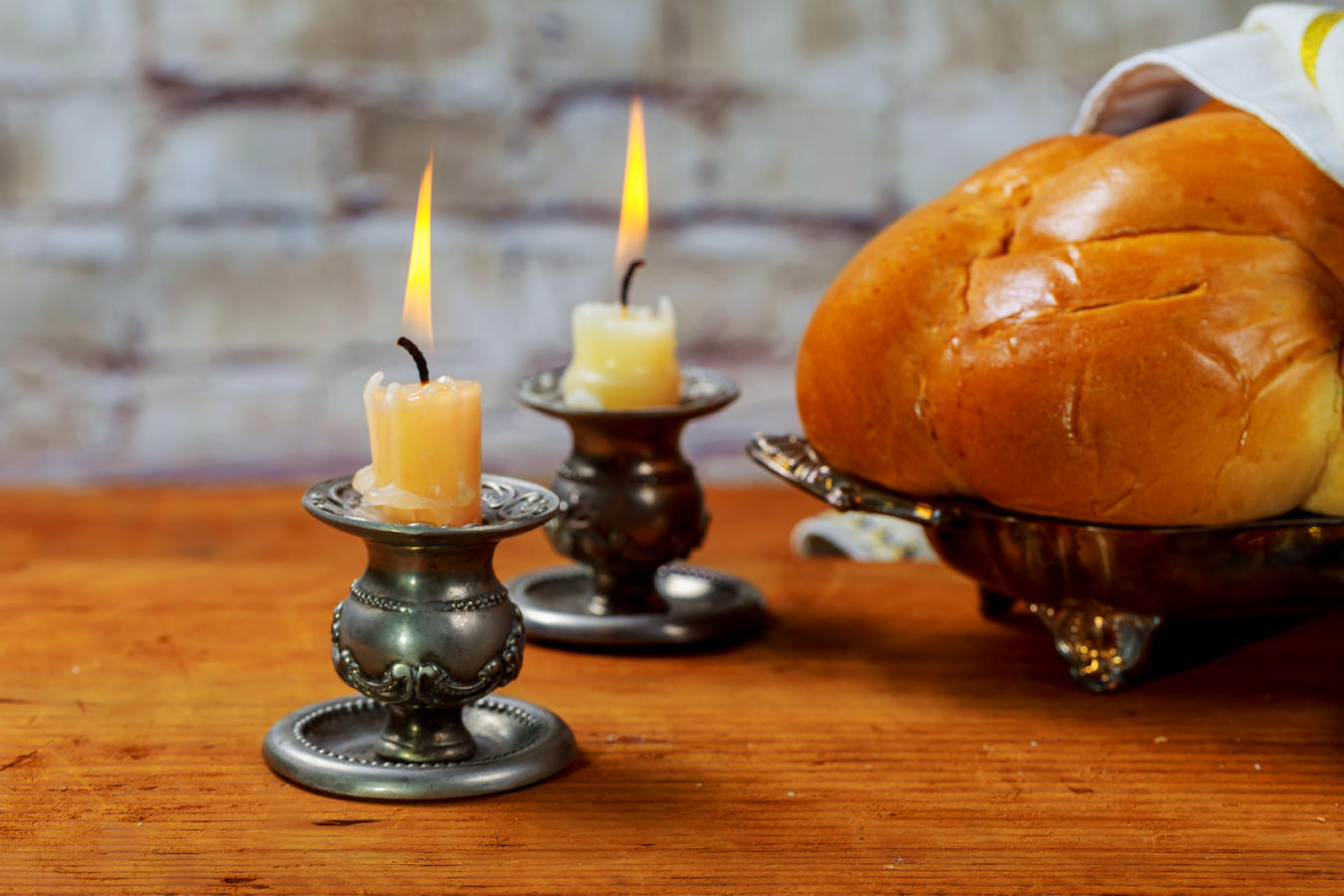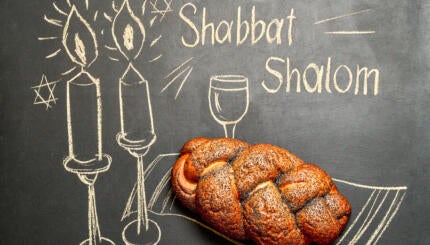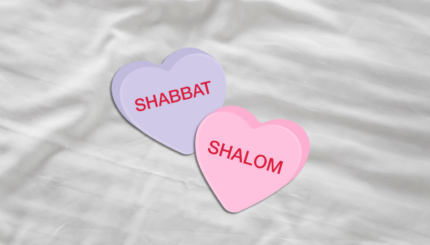Shalom Aleichem (literally “peace be upon you”) is both a traditional Jewish greeting and the title of a poem commonly sung at the beginning of the Friday night Shabbat meal. (It’s also the name of a beloved Yiddish writer, though the spelling differs from the common way the poem is rendered in English.)
The poem’s four stanzas (some Sephardic Jews add a fifth) welcome angels into the home on the Sabbath — welcoming them in peace, asking for blessings of peace, and wishing them a peaceful departure (when the Sabbath ends). In some families, the custom is to sing each verse three times.
The song originated among the kabbalists of northern Israel in the 16th or 17th century and was based on the talmudic teaching that two ministering angels — one good and one evil — accompany a person home from synagogue on Shabbat evening. According to the teaching, if they find the person’s home prepared for Shabbat, the good angel declares: “May it be Your will that it shall be like this for another Shabbat.” And the evil angel answers against his will: “Amen.” If the home is not prepared, the reverse happens: The evil angel voices a wish for it to be this way for another week and the good angel responds “Amen.”
Singing Shalom Aleichem prior to the Friday evening Shabbat meal is a nearly universal Jewish custom. The most common melody for it was composed by Rabbi Israel Goldfarb, a Polish born cantor who emigrated to New York in the late 19th century. According to a letter Goldfarb wrote in 1963, the melody was composed on a Friday in 1918 on the campus of Columbia University.
With your help, My Jewish Learning can provide endless opportunities for learning, connection and discovery.
The full text of Shalom Aleichem is as follows:
שָׁלוֹם עֲלֵיכֶם מַלְאֲכֵי הַשָּׁרֵת מַלְאֲכֵי עֶלְיוֹן
Shalom aleichem mal’achei hashareit mal’achei elyon
Peace be with you, ministering angels, messengers of the Most High,
מִמֶּלֶךְ מַלְכֵי הַמְּלָכִים הַקָּדוֹשׁ בָּרוּךְ הוּא
Mimelech malchei ham’lachim, ha-kadosh baruch hu
Messengers of the King of Kings, the Holy One, Blessed be He.
בּוֹאֲכֶם לְשָׁלוֹם מַלְאֲכֵי הַשָּׁלוֹם מַלְאֲכֵי עֶלְיוֹן
Bo’achem l’shalom mal’achei hashalom mal’achei elyon
Come in peace, messengers of peace, messengers of the Most High,
מִמֶּלֶךְ מַלְכֵי הַמְּלָכִים הַקָּדוֹשׁ בָּרוּךְ הוּא
Mimelech malchei ham’lachim, ha-kadosh baruch hu
Messengers of the King of Kings, the Holy One, Blessed be He.
בָּרְכוּנִי לְשָׁלוֹם מַלְאֲכֵי הַשָּׁלוֹם מַלְאָכֵי עֶלְיוֹן
Barechuni l’shalom mal’achei hashalom mal’achei elyon
Bless me with peace, messengers of peace, messengers of the Most High,
מִמֶּלֶךְ מַלְכֵי הַמְּלָכִים הַקָּדוֹשׁ בָּרוּךְ הוּא
Mimelech malchei ham’lachim ha-kadosh baruch hu
Messengers of the King of Kings, the Holy One, Blessed be He.
צֵאתְכֶם לְשָׁלוֹם מַלְאֲכֵי הַשָּׁלוֹם מַלְאָכֵי עֶלְיוֹן
Tzeitchem l’shalom mal’achei hashalom mal’achei elyon
Go in peace, messengers of peace, messengers of the Most High,
מִמֶּלֶךְ מַלְכֵי הַמְּלָכִים הַקָּדוֹשׁ בָּרוּךְ הוּא
Mimelech malchei ham’lachim ha-kadosh baruch hu
Messengers of the King of Kings, the Holy One, Blessed be He.
Sign up for My Jewish Learning’s RECHARGE, a weekly email with a collection of Shabbat readings and more to enhance your day of rest experience.



